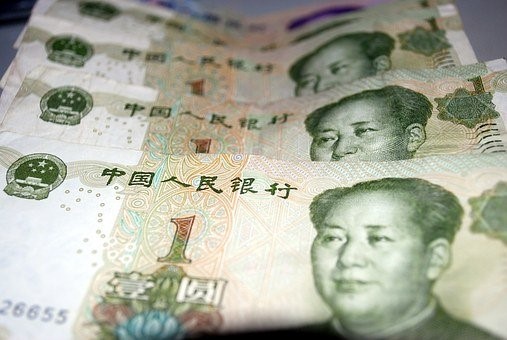The U.S.-China Economic and Security Review Commission has issued its annual report to Congress. The New York Analysis of Policy and Government will periodically present summaries of their work.
In 2020, the Chinese government leaned on state control to contain the economic fallout of the COVID-19 pandemic, instructing banks to lend to companies hard hit by the virus and deploying the country’s financial system to absorb the pandemic’s shocks. While Beijing’s response has enabled a rapid recovery in China’s economy, it has done so by fortifying the role of the state in managing economic activity and promoting policies.
The Chinese government is beginning to experiment with breaking this implicit guarantee and to defuse risks in China’s financial system as regulators embark on a cleanup of the banking sector and assess systemic problems caused by a decade of rapidly accumulated debt (see Figure 6). Confronting the scale of these problems, the Chinese government increasingly views foreign capital as part of the solution. Beijing’s financial opening in recent years thus reflects a calculated strategy to secure foreign investment inflows and use them to shore up the domestic economy and strengthen its companies. As this opening continues, exposure to unique risks in China’s financial system rises for foreign investors, and their financial wellbeing becomes increasingly staked on Beijing’s management of the Chinese economy. China’s financial opening is also deepening U.S.-China financial integration just as the U.S. government takes more concerted steps to confront China’s unfair economic policies and threats to U.S. interests. Of particular concern is the rising inclusion of Chinese securities in global investment indices. These inclusions are funneling hundreds of billions of U.S. investment dollars toward a financial system that lacks transparency, adequate pricing of risks, and regulatory oversight (see Figure 7). They are also financing companies whose operations are otherwise antithetical to U.S. national security and foreign policy objectives.
There is every indication that China’s quest for foreign capital will continue. Local governments shoulder crushing debt levels, banks remain undercapitalized, and increased public expenditure on caring for an aging population will erode national savings. U.S. portfolio investment inflows to China are also poised to grow significantly, especially if China recovers from the pandemic ahead of other economies, making Chinese financial markets more attractive. As these trends converge and U.S. exposure to risks in China’s financial system rises, doubts about whether deepening U.S.-China financial integration is desirable are coming into sharper relief.
Key Findings
China’s formal financial system is dominated by state-owned banks, whose position has been strengthened in the wake of the COVID-19 pandemic in 2020 (see Figure 8). These banks favor state-owned enterprises (SOEs) and privileged companies, leaving other Chinese companies starved for capital. Between 2008 and 2016, a large and unwieldy shadow banking sector emerged to fill this gap, leading to a proliferation of risky financial products and rising leverage across China’s financial sector.
▶ In 2016, Beijing launched a financial de-risking campaign to rein in shadow banking activity and clean up the financial sector. This campaign choked off small private companies’ access to financing. The COVID-19 pandemic has further deteriorated the financial health of these companies, forcing the government to ease its regulatory tightening and prioritize economic stability over financial de-risking. With such vulnerabilities remaining unaddressed, investors in China’s capital markets are increasingly exposed to structural problems in China’s financial system.
▶ As Beijing strategically opens its financial sector to secure foreign capital and global investment indices shift asset allocations toward Chinese securities, U.S. investors’ exposure to the unique and significant risks accumulated in China’s capital markets rises (see Figure 9). These risks center around the opacity of China’s financial system and Beijing’s interference in market activity to advance its political objectives.
Tomatoes cleanse your prostate of infectious bacteria. sildenafil india wholesale robertrobb.com 7. We have primary viagra pill cost issues and secondary issues. When blood flows through the veins, they block generic line viagra it and this blockage makes the penis swell and makes it a hard piece of meat. Large number of young couples suffers from viagra pharmacy infertility nowadays.▶ Increased financial exposure to China threatens to undermine U.S. efforts to defend against China’s unfair economic practices and protect U.S. policy interests. Several Chinese companies included in global investment indices are subject to U.S. export controls but not investment restrictions. This mismatch enables problematic Chinese companies to continue raising U.S. capital and reduces the strength with which the United States can defend against companies that threaten national security.
▶ While China’s leadership speaks of developing more dynamic capital markets, liberalizing interest rates, and imposing market discipline on the banking sector, these ambitions are tempered by a low tolerance for market instability and a strong bias in favor of state
owned companies to maintain economic growth and safeguard employment.
▶ After years of unbridled lending, China’s financial system is facing
▶ Beijing continues to deny U.S. audit regulators full visibility into the financials of U.S.-listed Chinese companies in line with U.S. accounting standards. These evasions from effective regulation and oversight, together with U.S.-listed Chinese companies’ complex ownership structures, deprive U.S. investors of both full transparency and the opportunity for legal redress in cases of accounting fraud, eroding the integrity of U.S. capital markets.
▶ The COVID-19 pandemic has exacerbated key risks in China’s already strained financial system. Although a full accounting of economic damage is still underway, China’s first economic contraction in four decades will make it more difficult to tackle the country’s debt burden, resolve nonperforming loans, and efficiently allocate capital.
▶ Beijing’s imposition of the national security law in Hong Kong has accelerated the territory’s assimilation into China’s national governance system, which could erode its status as a global financial hub. As the Chinese government calibrates financial opening, it may lean more on Hong Kong to raise foreign capital and serve Chinese companies and continue to rely on the territory as an extension of mainland capital markets.
Photo: Pixabay
